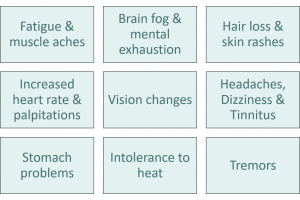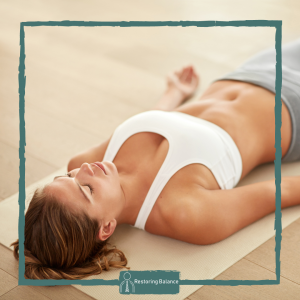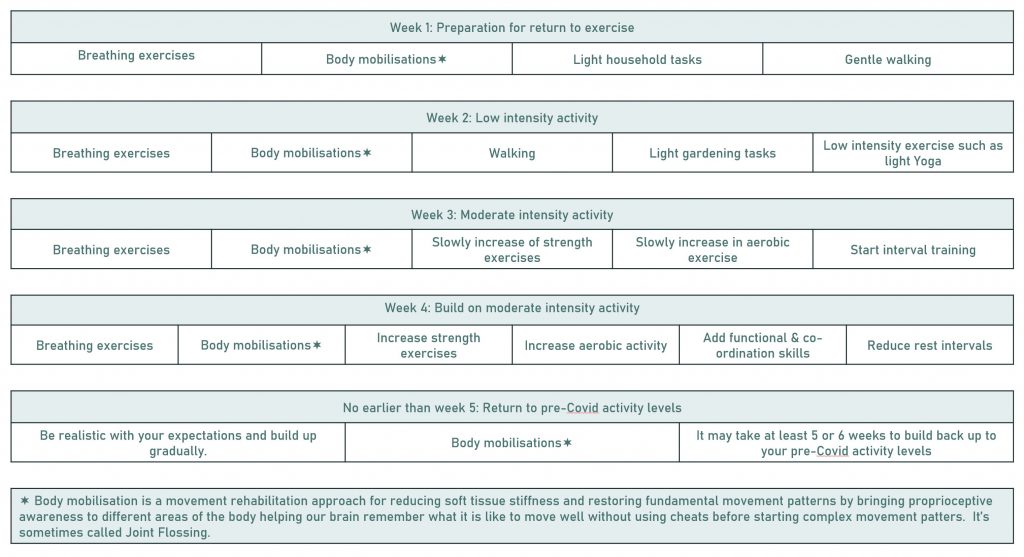If you’ve had Covid, it may have affected your ability to exercise. But there is a pathway back to fitness. Find out more.
How has Covid affected my body?
Your body has been on a rollercoaster of a ride. It’s going to take some time to get back to where you were. Covid affects people in different ways; some people recover quickly with few lingering side effects, others go on to develop Long Covid.
Some of the things that you may recognise in your own recovery:
- Your lungs feel stiff – this is down to damage in elastic recoil of your lung tissue. This makes breathing feel harder.
- A buildup of fluids & secretions (think mucus) – making it harder to breathe when you are active.
- Changes in oxygen levels (shortness of breath after small tasks)
- Feeling weak and out of shape as you have not been as active. In severe cases you may have suffered some muscle wastage.
- Increased anxiety due to being ill, returning to previous health and fitness levels and uncertainty about the future
What about Long Covid?
Many people will feel better in a few days or weeks after contracting Covid and most will make a full recovery within 12 weeks. But for 1 in 10 people, coronavirus (Covid-19) can cause symptoms that last weeks or months after the infection has gone. The current data suggests that more women are are affected by Long Covid. This is sometimes called post-Covid-19 syndrome or “Long Covid”.
Based on my own experience here in clinic, Long Covid has many similarities with both Chronic Fatigue and Post Concussion Syndromes, with the effects being felt in multiple systems within the body, particularly in the endocrine system.

Becoming more active
Rest is important to allow your body to recover but your body also needs to move too so that it functions well. Start slowly and build up your level of activity over time. You may find simple household tasks like loading the dish washer or putting the laundry away are exhausting initially, but this does get better.
Finding the balance between being active and resting may take time to get right, but building a daily routine can help you feel better. Try not rush or push yourself too hard, and don’t feel discouraged if you experience a setback. If you’re still in this place, look here at the spoon theory.
Try to get outside in fresh air every day; walking is a great restorative exercise. Don’t worry if you need to stop and rest, that’s a normal part of recovering and getting strong.
Does it all start with breath?
Those of you who have worked with me in clinic will know that everything starts with the ability to breath well. This is the foundation of good health.
Breathing is more than just our lungs – it involves our diaphragm, core muscles and pelvic floor. Being able to breathe well helps other systems within the body to be able to function – digestion, circulation and lymphatic draining. It also helps us sleep, manage our stress levels and helps with core activation.
Breathing can calm our nervous system down, relax us, or bring us back from a stressful situation. Back pain, neck pain, incontinence issues, poor posture and weak core activation can all be symptoms of poor diaphragm mechanics.
With Covid being predominantly a respiratory infection, it’s well worth working with a skilled therapist who can evaluate how well your breathing mechanics are working.
There are many different types of breathing practices out there, some favourites that I work with in clinic are belly, box, crocodile, side and nasal breathing.

Supporting your body with healthy & nutritious food
In general, our diet contains way too many carbs and processed foods, this creates a roller coaster with our blood sugar levels leading to the body thinking it’s under attack. Research shows that the Covid virus damages insulin-producing cells, meaning your body may be less well equipped to process the glucose in these foods after the virus.
Eating a balanced diet of protein, proper fats and non-starchy carbohydrates is great, along with removing processed sugar from your diet. Staying hydrated is a really important part of returning to health, so remember to drink plenty of water!
Additionally, with modern farming methods it’s often necessary to use supplements to raise the levels of magnesium and zinc in our body. These help to keep the body in homeostasis by balancing the blood sugar.
I’d like to start exercising again. Where do I begin?
Looking to elite sports where an athlete has a break of between 10-16 weeks they’ll see a decrease of around 19% in their overall strength, and specifically up to a 40% strength reduction in their shoulders. There is a 300% increase in the injury rate in elite athletes who do not have a graded return to sport.
If you suffered from any of the following issues during your COVID-19 illness, you should be working with a local NHS specialist Covid-19 rehab service:
- Required hospital treatment
- Had cardiac symptoms during your illness – these include chest pain, palpitations, severe breathlessness and/or episodes of fainting
- Suffered with psychological symptoms
Before starting physical activity or exercise, you should be symptom free for 7 days.
Once you’ve been symptom free for 7 days and as long as you don’t need referral to a specialist Covid-19 rehab service, you should take a phased approach to returning to exercise and a more active life.
Here is a sample of what a return to exercise plan could look like, each step will take at least a week.

How do I keep myself in check?
Once you get going with exercise, you’ll probably want to track your progress – here are some different ways:
- Increase the length of your warm up and cool down – this should be about 15 minutes.
- Save the floor exercises for the end of the session to reduce the likelihood of feeling dizzy.
- Can you pass the talk test? You should be able to speak about 3-5 words before needing to catch your breath; if you are gasping for breath between words then you are working too hard for where your body is at right now. If you can talk at length without real challenge, then you can up the intensity a bit.
- Heart rate – it should increase in a linear way, in line with the amount of activity you do. If it doesn’t follow this pattern, slow down and see what happens. If it continues, arrange to see your GP.
- Respiratory rate – it should also increase steadily, you should be able to say 3-5 words per breath, if you can’t you need to slow down.
- Listen to your body – it’s going to be slower than you think, your body is wise, it will let you know when it’s ready to progress.
How can I help?
Claire is a Health, Wellbeing and Rehabilitation Specialist at Restoring Balance; a sports scientist who is also a multi-disciplined therapist specialising in person-centred care. Claire has a refreshingly different approach to health, wellbeing & rehabilitation using a unique combination of movement, nutrition & mind to help you with your recovery by:
- understanding the changes your body has been through
- understanding and managing your fatigue
- coaching you to breathe effectively again
- setting realistic exercise goals
- adapting your training to support your recovery
- supporting your recovery with nutritious & nourishing foods
- rebuilding your immune system
References:
https://abcnews.go.com/Health/story?id=2348213&page=1
https://blogs.bmj.com/bjsm/2020/12/18/return-to-exercise-helping-patients-to-overcome-the-long-tail-of-covid-19/
https://cdn.totalcomputersusa.com/butyoudontlooksick.com/uploads/2010/02/BYDLS-TheSpoonTheory.pdf
https://covid.joinzoe.com/post/long-covid
https://covidpatientsupport.lthtr.nhs.uk/#/lessons/kKfv5E09JJfIbBPeMLa0g6pL-zvzRG4j
https://link.springer.com/article/10.1007/s40279-013-0031-3
https://www.acc.org/latest-in-cardiology/articles/2020/07/13/13/37/returning-to-play-after-coronavirus-infection
https://www.aspetar.com/news-item.aspx?id=491&&lang=en#038;lang=en
https://www.bmj.com/content/372/bmj.m4721?fbclid=IwAR31yJOno1DSYyVHFSW1J6iCRAmCBvXvYFo6yet9-EZhgo-kVLAEWREyK6M
https://www.csp.org.uk/public-patient/covid-19-road-recovery
https://www.nature.com/articles/d41586-020-01891-8
https://www.nhs.uk/conditions/coronavirus-covid-19/long-term-effects-of-coronavirus-long-covid/
https://www.ons.gov.uk/peoplepopulationandcommunity/wellbeing/articles/coronavirusanddepressioninadultsgreatbritain/june2020
https://www.rcot.co.uk/recovering-covid-19-post-viral-fatigue-and-conserving-energy
#covid #immunehealth #bloodsugars #health #anxiety #breathe #breathwork
